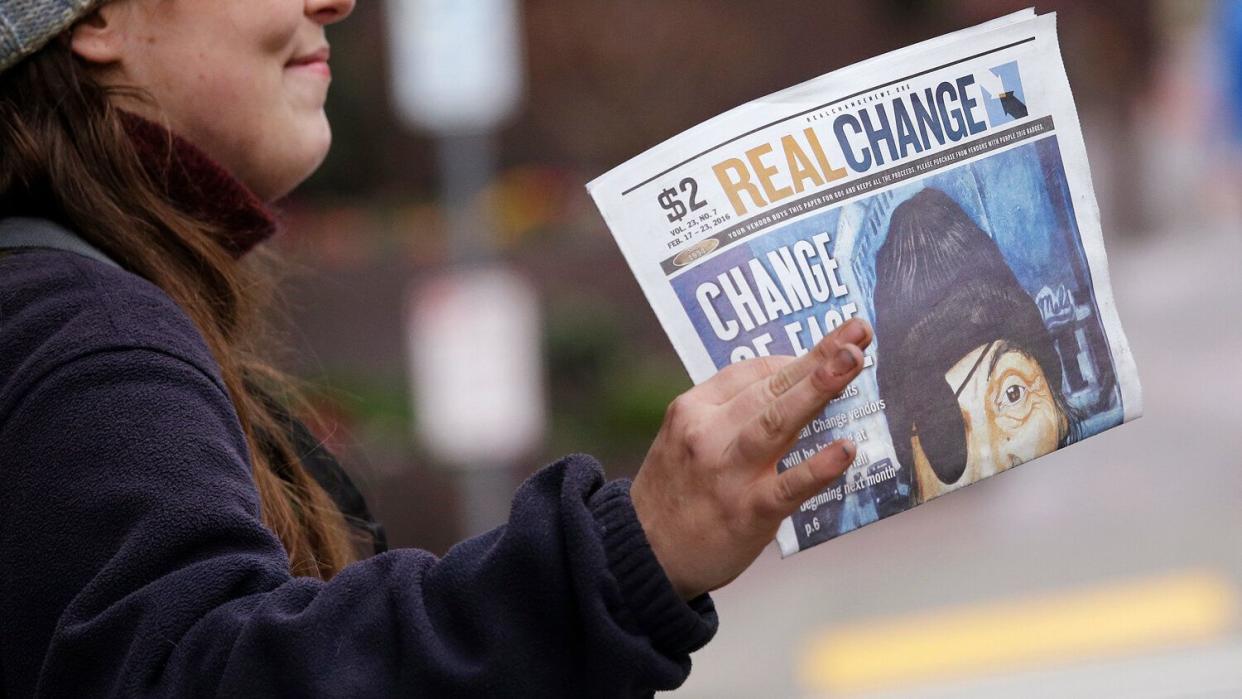Street Newspapers Are Struggling To Survive Societal Shutdown

SEATTLE ― One week ago, before Washington Gov. Jay Inslee (D) issued a “stay at home” order shutting down all but the most “essential” businesses in an effort to slow the spread of COVID-19, the office of Real Change, a street newspaper sold by homeless and low-income people in Seattle, was still bustling.
As one vendor collected papers from a staffer at the walk-up counter, another slipped a copy of the latest edition ― cover line: “SILENT SPRING: The City Shuts Down” ― into its clear plastic display case, upside down. “Because the world is upside down!” said vendor Shelly Cohen.
Nearby, a staffer handed a bowl of chili to a vendor who had just stopped by to take a load off.
But once the stay-at-home order came on March 23, the vendors were left with nothing to do ― and, for many of them, no way to make money.
The weekly paper’s founder, Tim Harris, said the staff had already decided to stop publishing a print edition earlier this month, but had still been letting vendors buy papers to sell on the streets up until the stay-at-home order.
Harris founded the Boston street paper Spare Change News before moving to Seattle and starting Real Change in 1994. This is the first time in the paper’s 26-year history that it’s skipped a scheduled publication date.
A similar story is playing out in cities across the country, where street papers ― newspapers that report on poverty and homelessness, and are sold on the street by low-income or homeless vendors ― are disappearing, as vendors fold their chairs, abandon their perches outside grocery stores and downtown businesses, and vanish.
“Currently, I believe that 100% [of street papers] have either stopped publication or are transitioning into halting their physical” press runs, said Israel Bayer, director of the International Network of Street Papers.
Some, like Real Change, have shifted to online-only publication, but about three-quarters of street newspapers have never had...



